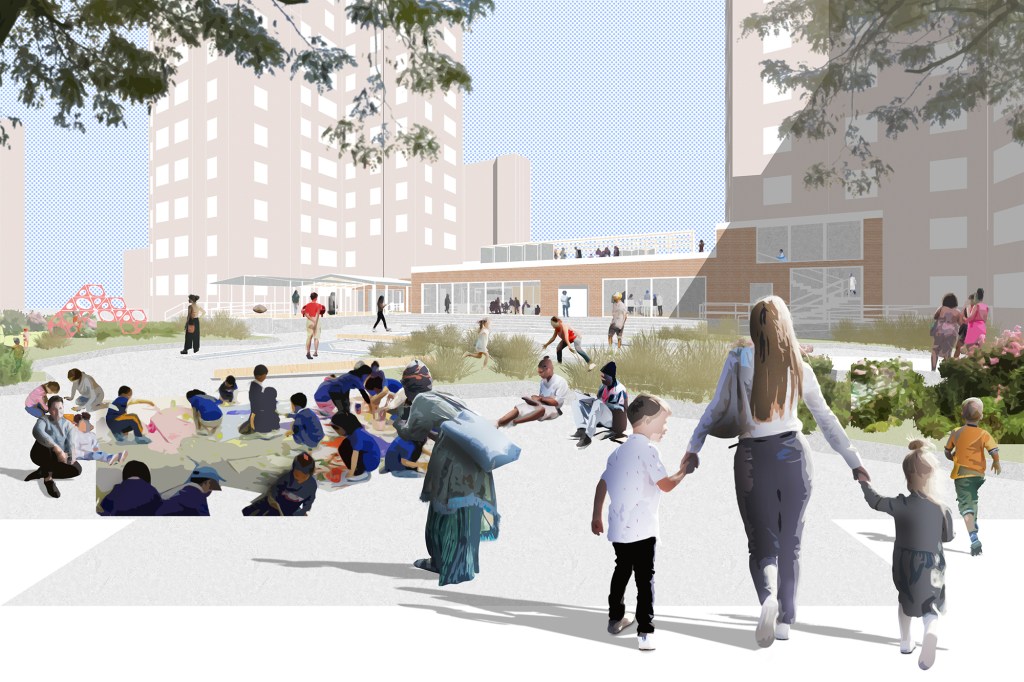In 2021, members of Dark Matter U began working with residents of Gowanus in Brooklyn, N.Y. As educators and practitioners, DMU worked both inside and outside of university institutions and curricula to center the people within the neighborhood. Through a series of workshops, seminars, and studio coursework that extended over two years, DMU explored how an alternative entity can build ongoing, collaborative processes in working with and supporting people and neighborhoods as they move toward creating forms of spatial justice.
In partnership with New York–based Van Alen Institute, DMU collaborated on the 2021 Neighborhood Design Fellowship in Gowanus, Brooklyn. The six-month program provided a stipend for the fellows, all of whom were Gowanus residents, to participate in workshops that centered community knowledge and visioning of goals and objectives for collective spaces. DMU adapted its Foundations of Design Justice seminar, which had been collectively developed and co-taught in universities, for the fellowship. By listening to the experiences of the fellows, DMU began building collective capacity to assess, address, and grapple with the complexity of issues specific to the networks within Gowanus. One specific result of the efforts was a co-developed pamphlet that outlined issues and existing conditions of the underutilized Gowanus Houses Community Center.
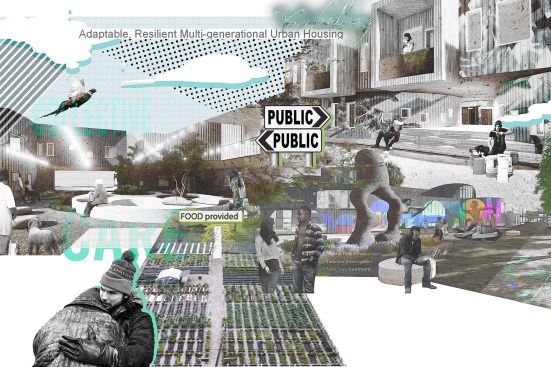
Torri Smith
Digital collage by Torri Smith for the University of Michigan spring 2021 Foundations of Design Justice seminar.
Responding to the fellows’ call for alternative community center designs, DMU solicited the skills of New York–based architecture firm Brandt : Haferd and University at Buffalo School of Architecture and Planning architecture students in the fall 2021 semester. Students listened to, learned, and processed fellows’ experiences to collaboratively develop visions for the community center. DMU hosted academic review sessions with fellows to foreground their interests and needs. During the spring 2022 semester, UB architecture students continued to collaborate with the fellows to assess, support, and expand on ongoing work by existing networks within Gowanus, including Gowanus Mutual Aid and Gowanus Houses Residents’ Association.
Throughout the process of working with Gowanus Neighborhood Design Fellows, DMU adapted and expanded processes of co-design and co-creation. At each stage, from initial relationship-building, to visioning and designing spaces, to ongoing work over time, DMU’s process continually revisits and re-centers the experience and knowledge of community members in order to build collective capacity for change.
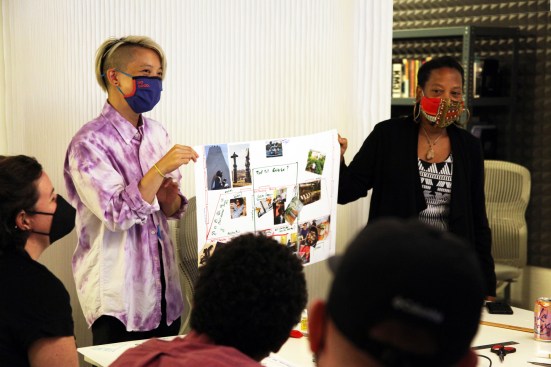
Van Alen Institute
Collage workshop, 2021 Neighborhood Design Fellowship.

Jerome Haferd
Tour of the Gowanus Houses Community Center as part of the 2021 Neighborhood Design Fellowship: Gowanus.
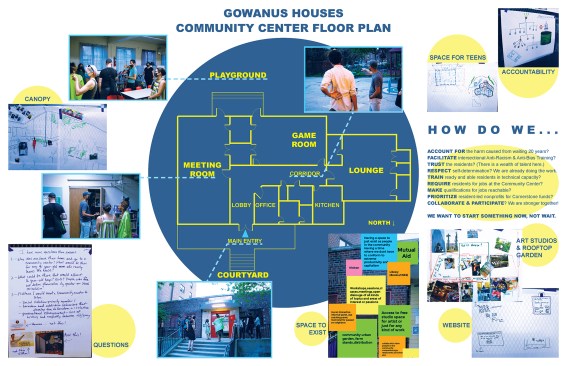
A.L. Hu
Strategic Mission Pamphlets by DMU and the Fellows from 2021 Neighborhood Design Fellowship: Gowanus.
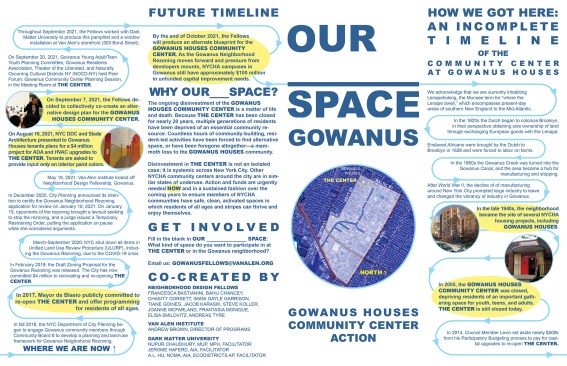
A.L. Hu
Strategic Mission Pamphlets by DMU and the Fellows from 2021 Neighborhood Design Fellowship: Gowanus.
Reviewed by Shalini Agrawal, Fallon Samuels Aidoo, Andrew D. Chin, Ifeoma Ebo, Andrew Hart, and Lisa c. Henry.
This article first appeared in the October 2023 issue of ARCHITECT, which was guest edited and designed by Dark Matter U.
